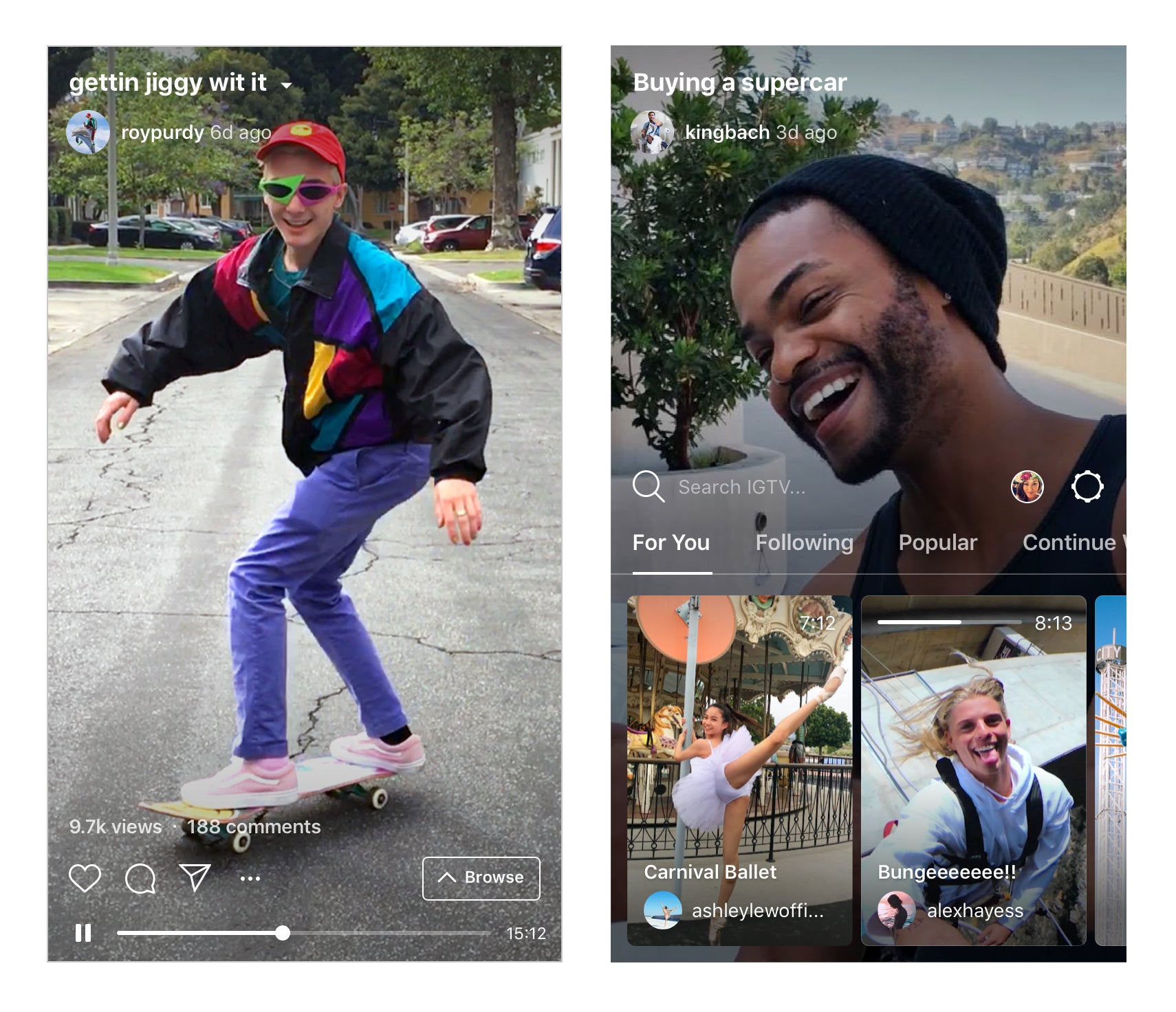To compete with YouTube, Instagram introduces hour-long videos
Instagram on Wednesday (June 20) announced a new in-app feature and standalone app that will allow users to post videos of up to 60 minutes. Dubbed IGTV, it is expected to roll out in coming weeks.


Instagram on Wednesday (June 20) announced a new in-app feature and standalone app that will allow users to post videos of up to 60 minutes. Dubbed IGTV, it is expected to roll out in coming weeks.
Instagram CEO Kevin Systrom made the announcement during an event in San Francisco today, exactly five years after the company first added video to its platform. Each of IGTV’s channels will belong to a “creator,” some of whom were present at the event—social media star Lele Pons, for example, gave a preview of her IGTV cooking show—but Instagram emphasized in its announcement that anyone can be a creator.
IGTV sends somewhat of a mixed message from a platform whose parent company, Facebook, has vowed to turn social-media time into “time well spent.” But it’s also an obvious effort on Instagram’s part to compete with YouTube and its army of influencers.
One big differentiator between IGTV and YouTube: The former uses full-screen vertical video. In a press release, Instagram said this is because IGTV is “built for how you actually use your phone,” unlike the more traditional horizontal format.
Business-wise, the move makes perfect sense. According to market-research firm eMarketer, video makes up 17% of all US digital ad spending, and an increasing number of people are watching video on their phones. Systrom said Wednesday that Instagram now has 1 billion monthly users, and the Pew Research Center recently reported that 72% of US teenagers say they use Instagram. (By comparison, 85% use YouTube.) Instagram Stories, the feature that lets users post short, temporary video segments, has been a huge hit for the platform.
“We believe this is a smart strategy and a clear shot across the bow at YouTube and looking to court content from that platform,” Daniel Ives, an analyst at GBH Insights told Quartz. “Instagram is in a position of strength and this is both an offensive and defensive strategic move for them.”
It could be a good moment for Instagram to pounce, as YouTube has come under fire for allowing exploitative and fake content on its platform (a problem Instagram is not immune to either). Some YouTube influencers are also unhappy with the video platform, whose algorithm they say encourages frequent posting that leads to burnout and mental health problems. What remains unclear is how exactly advertising and revenue will work on IGTV, and whether Instagram, like YouTube, will make money off of its video influencers.
A Facebook spokesperson said the company will be exploring ways to monetize IGTV, but will not be doing so immediately. ”Creators are both entertainers and a source of inspiration and identity for young people, and we’re excited for even more of them to emerge with IGTV,” the spokesperson said. “We are committed to helping them build their careers and make a living doing this work.”
Though a logical business move, IGTV does raise questions about Facebook’s ostensible new mission to fix some of problems it has created, including social media addiction. Earlier this year, CEO Mark Zuckerberg said his priority is to make sure that time spent on Facebook is “time well spent,” a phrase borrowed from critics of Silicon Valley’s monopoly on our attention. Instagram is even working on a feature that would help users measure and limit time spent on the platform. IGTV’s 60-minute videos will add up quickly.